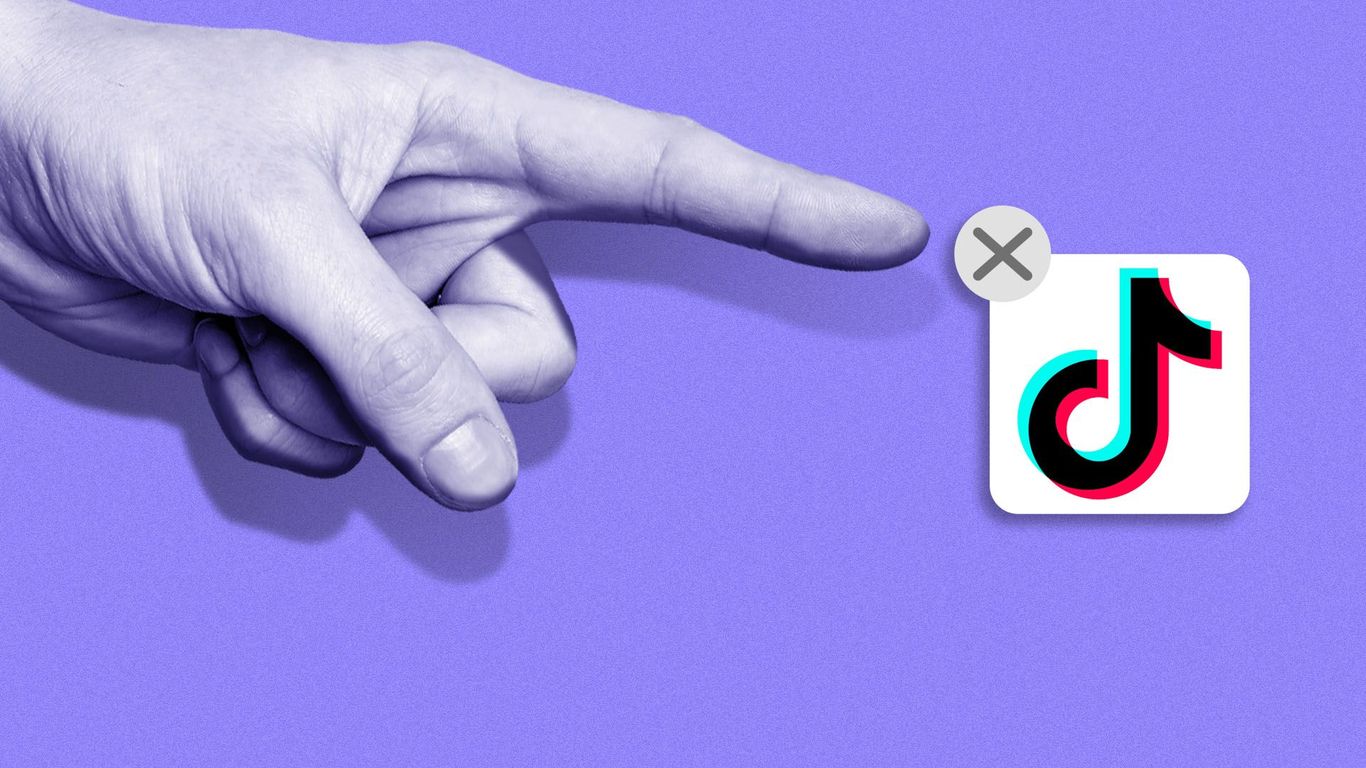The U.S. government's threat to ban TikTok takes aim at what has become the most popular smartphone app in the country.
Why it matters: TikTok’s scale presents an enormous challenge to lawmakers trying to argue that the app’s national security threat outweighs the wishes of the millions of people and businesses that use the app.
- The TikTok app has been downloaded more times in the U.S. than any other social app since it merged with U.S. lip-syncing app Musical.ly in August 2018, according to data from Apptopia.
- The app is expected to generate more than $11 billion in U.S. ad revenue by 2024, far outpacing rivals like Snapchat, Pinterest and Twitter, per eMarketer.
- TikTok has also captured far more revenue than its competitors from in-app purchases, like coins that fans can use to tip their favorite creators, per Apptopia.
Driving the news: TikTok CEO Shou Zi Chew plans to highlight the app’s growth in remarks prepared for his first-ever Congressional testimony on Thursday and released Tuesday night by the House committee he will address.
- The company now counts more than 150 million monthly active users in the U.S., up from the 100 million users it first reported in 2020, executives confirmed to Axios.
- Chew will also likely cite TikTok's role in supporting small businesses — a message that's also been used by tech rivals like Meta and Google when faced with regulatory pressure.
- On Tuesday, Chew posted a TikTok video touting the app's reach, asserting that 5 million U.S. businesses, a majority of which are small or medium-sized, use TikTok to reach their customers.
Be smart: Tuesday's video is part of a broader consumer campaign that the short-video platform is beginning to push amid growing efforts by federal and state governments to limit or ban the app.
- Last week, The Information reported that TikTok sent a message to some creators inviting them to join its top executives in Washington D.C. to support the company on Capitol Hill.
- This week, TikTok is trying to appeal to users directly in the app. "Some politicians have started to talk about banning TikTok," Chew said in the video posted Tuesday. "Now this could take TikTok away from all 150 million of you."
- He then directed users to leave comments about "what you want your elected representatives to know about what you love about TikTok."
Between the lines: TikTok has ramped up its marketing efforts in recent weeks, buying prominent ad space alongside many of D.C.'s most prominent political publications.
- While most of TikTok's consumer messaging is focused on the ban risk facing the app, its Washington campaign has mostly focused on steps the company is taking to protect U.S. user data.
The big picture: Surveys indicate that the public remains mostly divided on whether the government should ban TikTok, but Republicans are much more likely to support a ban than Democrats.
- Lawmakers that oppose the ban argue the government needs to find more convincing proof that TikTok is a national security threat before forcing the app's Chinese parent ByteDance to sell to a U.S. company or face a ban.
- Lawmakers that support moves against TikTok say the app is a threat to U.S. user data privacy because of Chinese laws that require Chinese companies to share user data with China's government.
Yes, but: Many lawmakers fall somewhat in the middle, arguing that lawmakers need to provide the public with more clarity about the actual national security risks.
- "If you’re going to pull the plug on one of the largest digital communities in the country, you have to make a very clear case for why you’re doing that,” Rep. Jeff Jackson (D-N.C.), an avid TikTok user, told Bloomberg.
What to watch: TikTok's U.S. tech rivals have been waiting in the wings, hoping their TikTok clones — like Reels on both Facebook and Instagram, YouTube Shorts, and Snapchat's Spotlight — could steal some market share from TikTok if it werebanned.
- Those services have all launched in the wake of former president Trump's initial proposal to ban TikTok in 2020, and many have grown pretty sizable.
- Google said last month that YouTube Shorts has crossed 50 billion daily views.
- Meta CEO Mark Zuckerberg said last month that Reels plays across Facebook and Instagram "have more than doubled over the last year," and people sharing Reels "has more than doubled on both apps in just the last 6 months."
Source: Read Full Article
